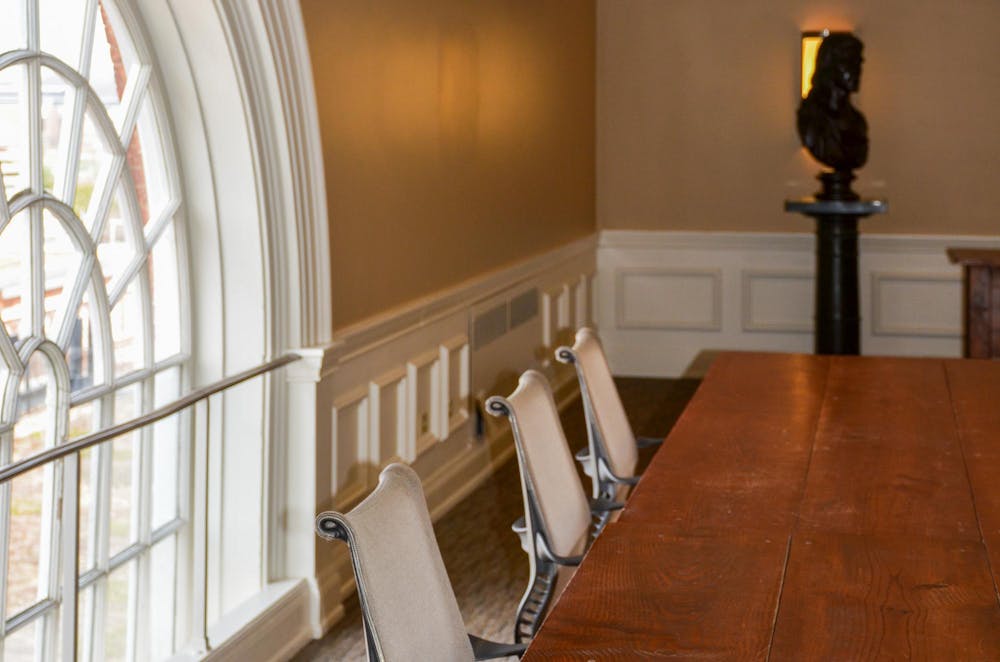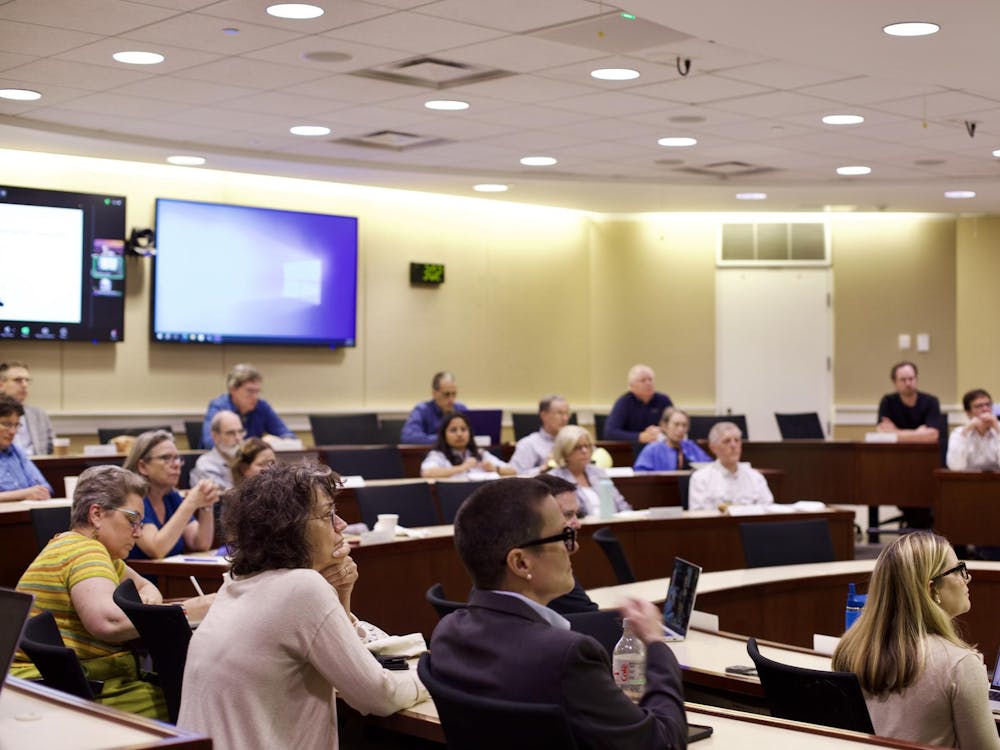The University Judiciary Committee has received 5 cases since the start of their new term April 1 which they will adjudicate to close out the semester. This brings the spring semester case count to 12, down from last semester’s 22 adjudicated cases. Newly received cases reflect recent trends of primarily falling under Standards 1 and 2 — violations pertaining to physical assault and threats to health and safety, respectively.
In the past few semesters, the UJC has seen a significant uptick in Standard 1 and 2 cases. According to Allison McVey, UJC chair and third-year College student, agreed these cases are not a deviation from what the Committee saw this past semester.
“In terms of the types of cases, I think that it still reflects the sort of now perennial trend of the uptick in Standard 1 and 2 cases,” McVey said. “I think that [the current type of cases] definitely isn't a deviation from that sort of norm that we've been experiencing.”
All active cases are those pertaining to individuals — there are no ongoing organizational cases being processed at this time. Past spring semesters, specifically the Spring 2024 semester, are typically when the UJC would receive a hazing case, coinciding with fraternity new-member activities.
Zach Davidson, vice chair for first years, endowment and alumni relations subcommittee co-chair and second-year College student, also shared that the First Year Judiciary Committee finalized two cases this year and has one that is planned to be heard in the fall.
Davidson’s position running the endowment subcommittee will continue the UJC’s ongoing work to create an endowment. Over the past year, the UJC, a newer organization founded in 1955, has worked towards building an endowment similar to that of the Honor Committee, a much older organization founded in 1842. The Honor Committee’s age and thus more alumni has allowed it to amass an over $5 million endowment.
In this effort, the UJC succeeded last fall in receiving a $20,000 per year commitment for three years, totaling $60,000, from the President’s Office. This money effectively doubles the UJC’s budget and goes towards outreach initiatives and supporting Committee members, but in a statement to The Cavalier Daily from Harper Jones, former chair and fourth-year College student, there is still much work to be done to further build out the endowment.
Speaking to the UJC’s efforts on this initiative, Davidson said that he and his co-chair, third-year College student Ella Abney, have been working on expanding the alumni database and meeting with leaders across Grounds to learn how to run a successful capital campaign.
In the vein of alumni relations, the Committee recently sent out a newsletter to update alumni and inform them of the UJC’s endowment efforts. Davidson estimated that about 300 alumni received the newsletter, whose contacts he and Abney worked to collect throughout the year.
“Our alumni database has been very decentralized,” Davidson said. “[Abney] and I have been really focused on … trying to update that and make sure it’s continuous from when the Committee was founded.”
According to Davidson, the Committee received a few responses to the newsletter indicating interest in continued involvement and aiding in the growth of the endowment. Davidson said responses varied widely in terms of age, with many former chairs from different decades reaching out.
The Committee is also planning a 70th anniversary celebration this fall, and Davidson said this is an opportunity to re-engage UJC alumni back on Grounds.
“We want to use [the anniversary celebration] as an avenue to get a whole bunch of alumni to come back to Charlottesville,” Davidson said.
A prominent initiative of the UJC and focus for the executive members is engagement with the community. Taryn Tuttle, senior educator and third-year College student said that in terms of outreach initiatives, the UJC has been successful in talking with incoming first-year students about the Committee’s mission and role at the University by tabling at Days on the Lawn in Newcomb.
“We've found that we've had some really good engagement and some really good questions, both about applications in the future and also just generally how this impacts a new student,” Tuttle said.
In regards to the transition of leadership between the 2024-2025 and 2025-2026 terms that occurred April 1, McVey attested that while most of the committee members are new to executive leadership roles, everyone is adjusting well.
“I think that we have a room full of eager and fast learners,” McVey said. “In the two [cases] that we've done so far [this term], people have really stepped into their new roles really well and performed for the Committee, which has been great to see.”
Anna Lynne Ramsey, senior counselor and third-year McIntire student, said she has seen adjustments within the counselor pool she oversees. She said that the pool was stretched thin in the fall, and as a result, a larger class was recruited for the spring. Many members of this new class are now getting to the point to begin staffing cases.
“Many of the [new counselors] just had their first case without a returner counselor as a shadow,” Ramsey said. “It's really exciting being able to expand our pool right now.”
McVey reflected on a slower time in the semester for the Committee, a period that offers respite following a busy previous term with a historic caseload.
“It's kind of a quiet period for us right now, which is definitely welcome,” McVey said.
The Committee is not planning to operate in the summer, as they typically do not under normal circumstances. Unless a case comes up involving a graduating fourth-year student, new cases will likely be pushed to be processed in the fall semester.
The UJC will hold their final general body meeting April 27, where it will hold an implicit bias training and send off their graduating members.







